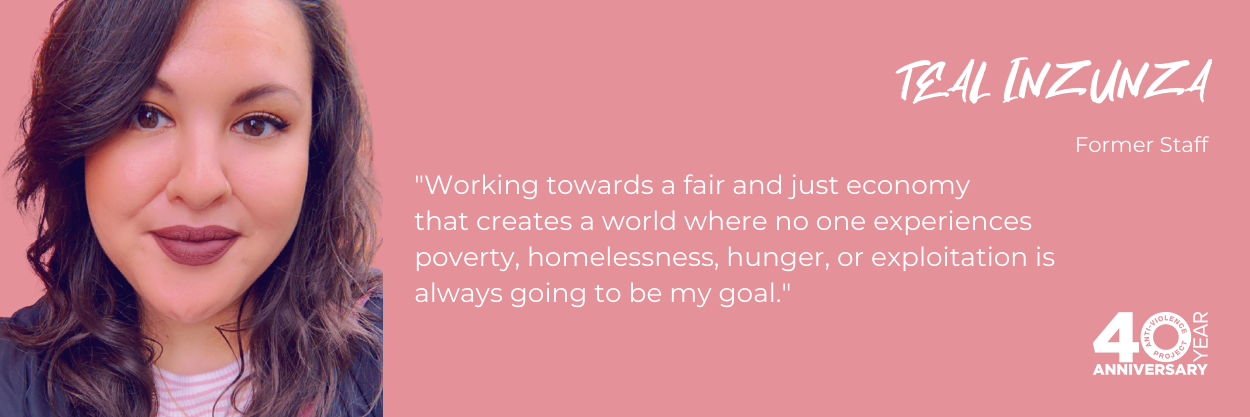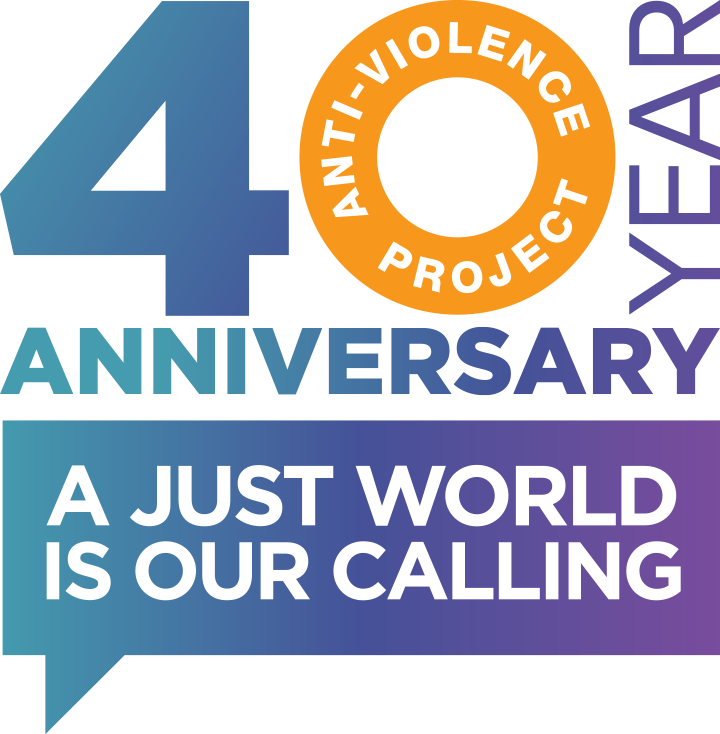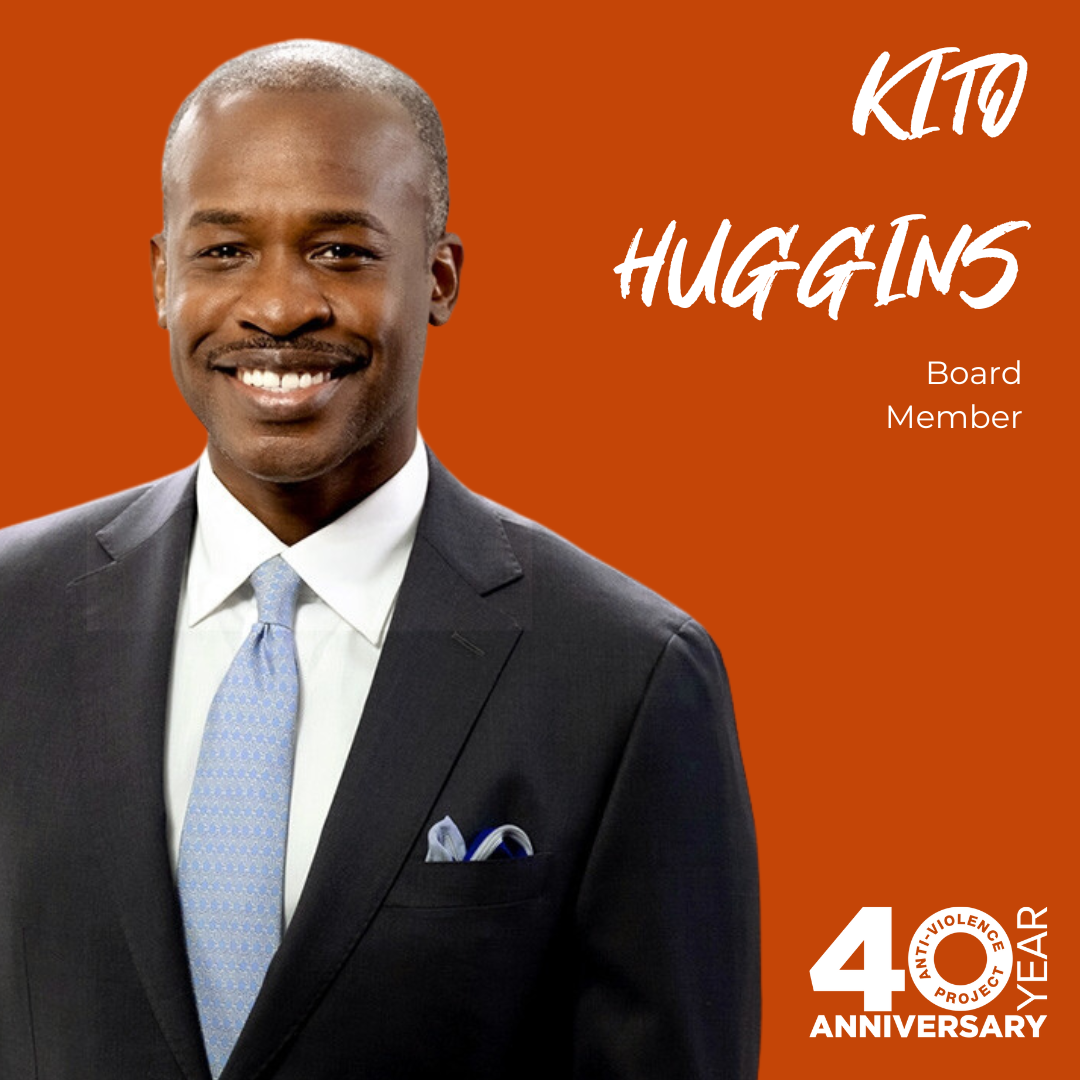
This interview has been shortened and condensed for clarity.
Teal Inzunza knew AVP was the right place for her after receiving the call to create AVP’s Economic Empowerment Program (EEP). She’d been looking for a job that would allow her to work at the intersection of trauma and economic justice while also holding an anti-oppressive lens on LGBTQ, people of color, immigrants, and HIV-affected individuals at the forefront of the work.
Teal understands the intense economic impact of experiencing violence. Her work helps us understand that including economic justice in trauma work is a crucial part of supporting survivors in moving forward. At AVP, she says she witnessed the incredible capacity that individuals and communities have to heal and be resilient.
Teal was responsible for creating and building AVP’s first ever Economic Empowerment Program in 2015, which supports LGBTQ and HIV-affected survivors in navigating the economic impact of violence.
What moved/inspired you to work at AVP?
I felt very personally moved to work with the community AVP serves. At the time, and still to this day, I felt that working with those most impacted by oppression is what I was meant to do. If I wasn’t including LGBTQ & HIV-affected individuals in my activism work, then my work was incomplete. I was incredibly excited to bring economic justice work to life at AVP in an initiative that was brand new to the organization and, in many ways, to the city.
For so many communities, especially for people of color, for women, for trans folks, finances aren’t something talked about in many of our households or taught to us at a young age due to, in a lot of ways, the impact of oppression that has played out intergenerationally. While most of our families learned how to make a dollar stretch better than anyone, things like credit scores and loans were things I didn’t fully understand until I got much older. Unfortunately, this led me to making a lot of mistakes in my early adulthood because I just didn’t have that knowledge until it was too late. I feel really passionate that these are tools that we can use now in order to survive. The system is f***ed up, but if we at least have the knowledge, we can survive within that system for now and eventually, one day, change it completely.
How has AVP’s work impacted you personally?
At the base of economic justice work are truly basic human needs and dignity work. It is difficult to fully heal from trauma if you are still without a home or still hungry. This is something that I have learned in my own life and something that I have been lucky enough to work for in my career. Working at AVP not only helped me better understand myself, but also helped shape me into the advocate I am today. I was, and truly remain, in awe of the survivors that I have worked with at AVP and their ability to reclaim their lives, rebuild their lives, careers, homes, families and communities after devastating experiences of violence and to heal. Ultimately, working at AVP gave me hope that true healing is possible, even in the direst of circumstances.
What’s the most important thing you’ve learned in your work?
I always considered myself an advocate, but being at AVP, I realized how much that was true. I ran the advocacy program and the economic empowerment program, and it really taught me how to disrupt space in a way that made people listen. So being able to push back on funders, or being able to push back on politicians that aren’t including queer and trans folks in their narratives, being able to be an advocate in whatever space I was in, I think that has been the most useful. I saw my bosses do that at AVP and over time I worked on honing that skill. And now I’m able to do that even in a space that’s not AVP.
How did you overcome your biggest obstacles in the work?
There’s so much shame involved with money and this is not a topic that we talk about openly in this country. So many of my clients at AVP said to me, “If I didn’t talk to you about this, I don’t know who I would talk to about it.” I think that really speaks to nature of how isolating issues around money can feel.
One of the most important parts of healing is to try to reduce the shame and isolation people are feeling. This is similar to the work we already do as counselors or therapists around the issue of shame for a myriad of different reasons, but often many have been made to feel shame around their gender identity or sexual orientation. While shame around money is similar, this is probably one topic that most therapists and advocates are uncomfortable talking about. You don’t know how many times I tried to get counselors to ask one question about money and they’d say, “I can’t do it.”
As workers, we are also bringing our own feelings about money to the table, and it can be uncomfortable to talk about when we aren’t confident with our own knowledge.
Why do you continue to do what you do?
Working towards a fair and just economy that creates a world where no one experiences poverty, homelessness, hunger, or exploitation is always going to be my goal. In the meantime, I am deeply committed to ensuring that survivors have the resources that they need like safe homes, nourishing food, meaningful work, and the affordable mental healthcare needed. AVP allowed me the opportunity to create the first Economic Empowerment Program at the organization. In many ways, it gave me the space and the platform to create a program that, I believe, truly impacted survivor’s lives in a meaningful way. This work led to my growth as an advocate for economic justice and is always present in the work I do to this day. It helped me become a leader and a visionary while centering those most impacted by oppression and violence. I am incredibly grateful for the opportunity to build the Economic Empowerment Program at AVP and to have supported the centering of economic justice in the organization.




